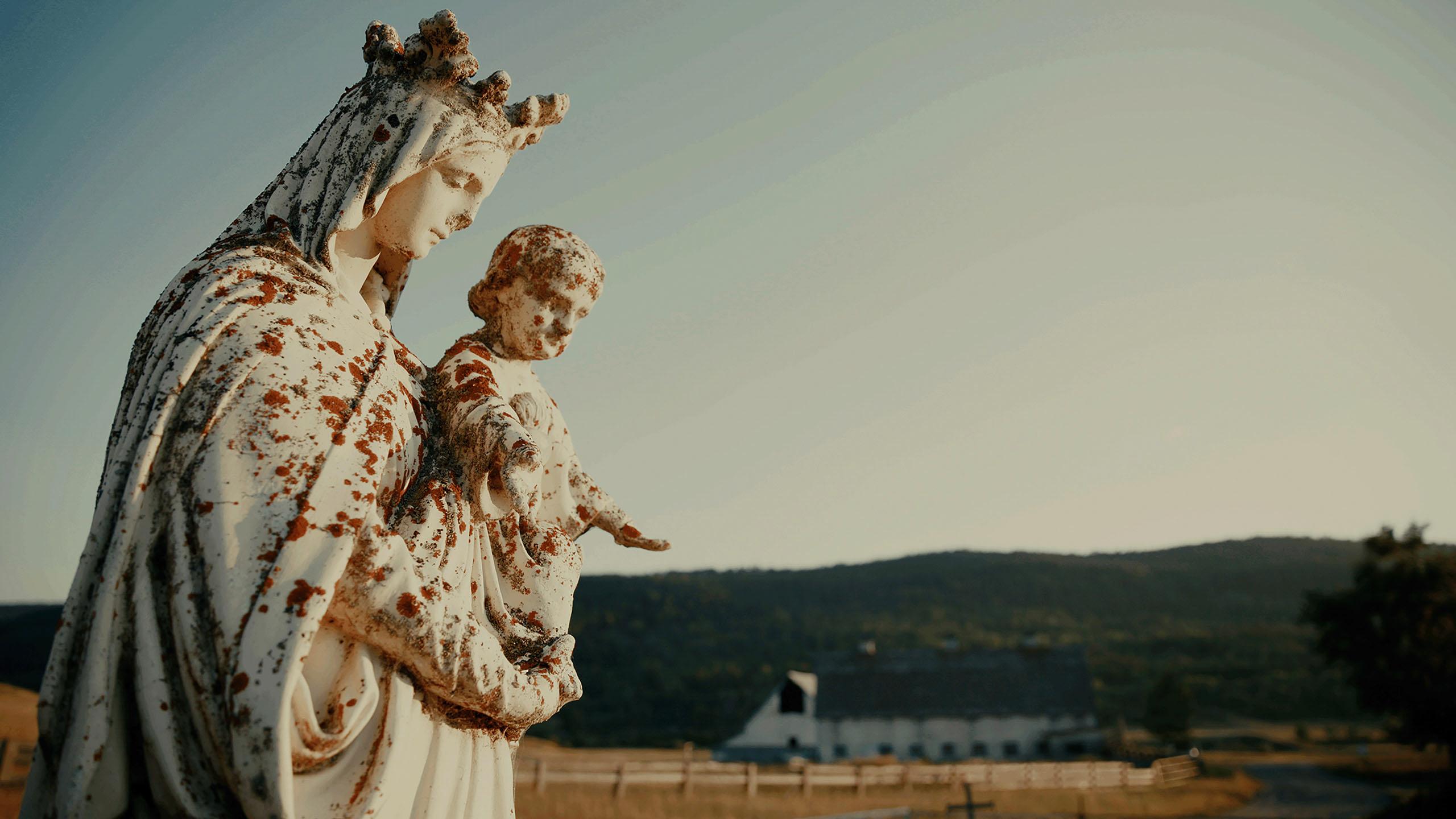I have family members and friends who have known someone who had survived the Holocaust and concentration camps. I’d ask my younger friends if they had talked to those family members about those experiences. And to a person they all said those family members refused, clearly not wanting to bring up those horrible memories. The ironically titled Sugarcane knows this pain all to well, and actually spends time trying to understand the depths of how that affects people.
The generational trauma in Sugarcane is the Canadian Indian residential school system. From 1876 to 1997, this system was a government funded, Catholic run effort to assimilate First Nations into the more Euro/Caucasian centric world. What did end up happening was a LOT of fear and covered up murders: 3,000-30,000, and countless others driven to suicide. Director Julian Brave NoiseCat, with reluctant, overdue government backing, rallies the Secwepemc Nation to finally dig into all the atrocities people know about from their personal time in the local residential school, sharing what he finds in this doc.
The investigation part of Sugarcane is hit or miss. The segments spent in libraries researching possible gravesites is probably necessary, but takes us out of the emotional place the movie wants us to be in. The success of these segments is correlated to a Native American who lived in one of those schools going back to that awful place. And while those scenes are powerful because of what they conjure inside of these aging survivors, it feels just a tad exploitative for the sake of a good movie. It does help that Julian is a member of the Secwepemc Nation, so he got the blessing of the tribe, but part of me wants to just let these poor old folks be at peace.
NoiseCat though wants to go deeper than I would. He pushes past those brave faces and really gets deep into how these residential school emotionally altered entire communities for generations. Julian brings in his father Ed Archie NoiseCat to get that point across; Julian tells Ed about this project, which Ed is VERY hesitant to revisit, opting to stay away while Julian stays with his grandmother, who also refuses to talk. Julian slowly convinces each of the older generation to open up about what they experienced. Obviously, the memories are horrific, as every crime that could be committed was, and on CHILDREN!!!!! in the name of religion. One poor man finds out through DNA testing that he’s the literal product of the depravity of these Catholic priests. All these residential school kids found no peace at home either, as parents wanted them to fall in line for fear of even worse consequences. That survival born hardened heart and spirit trickles down to Ed and eventually to Julian, who feels the after effects of Ed’s hurt, in a different form. Sugarcane is maybe the best explanation of how generational trauma works.
But also, how generational trauma can be overcome. All props to Julian NoiseCat, his family, and the Secwepemc Nation for opening themselves up in this film for all the world to see. It was probably hell going through all of this again, but you can see that trauma transform into understanding, which is clearly leading these people on the path to catharsis. I hope they find the peace they deserve, and the Canadian government does right by them and financially supports them. Though Yintah makes that feel much less likely…

